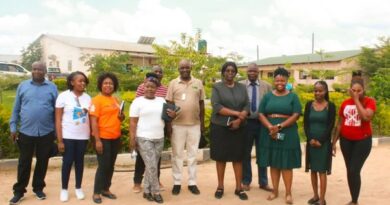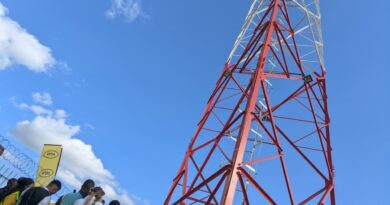WHO Declares Mpox Outbreak in Africa a Global Health Emergency
The World Health Organization (WHO) has declared the ongoing mpox outbreak in the Democratic Republic of the Congo (DRC) and several other African countries a Public Health Emergency of International Concern (PHEIC).
This decision was made by WHO Director-General Dr. Tedros Adhanom Ghebreyesus following recommendations from an independent emergency committee of experts.
The upsurge in mpox cases, particularly with the emergence of a new clade of the virus in eastern DRC, has raised alarms due to its rapid spread and the detection of cases in neighboring countries such as Burundi, Kenya, Rwanda, and Uganda.
With over 15,600 cases and 537 deaths reported in the DRC this year alone, the outbreak has significantly worsened, prompting global concern.
Dr. Tedros emphasized the urgency of a coordinated international response to curb the spread of the virus and save lives. He noted that the emergence of a sexually transmissible strain of the virus in DRC, along with its expansion into countries that have not previously reported mpox, underscores the need for swift and decisive action.
WHO Regional Director for Africa, Dr. Matshidiso Moeti, highlighted ongoing efforts in collaboration with local communities and governments to control the outbreak. She affirmed WHO’s commitment to scaling up these efforts through enhanced international cooperation.
The declaration of this PHEIC marks the second time in two years that mpox has been classified as a global health emergency. The previous declaration in July 2022 addressed a multi-country outbreak of mpox that spread rapidly through sexual contact in non-endemic regions. That emergency was declared over in May 2023 after a sustained decline in global cases.
The new virus strain, clade 1b, poses particular challenges due to its mode of transmission and potential for further spread. Experts believe that the actual number of cases may be higher than reported, as many clinically compatible cases have not undergone laboratory testing.
To combat the outbreak, WHO is working with countries and vaccine manufacturers to secure vaccine donations and facilitate equitable access to vaccines, therapeutics, and diagnostics.
The organization has already allocated $1.45 million from its Contingency Fund for Emergencies to support immediate response efforts and is seeking an additional $15 million to meet the full scope of the crisis.



